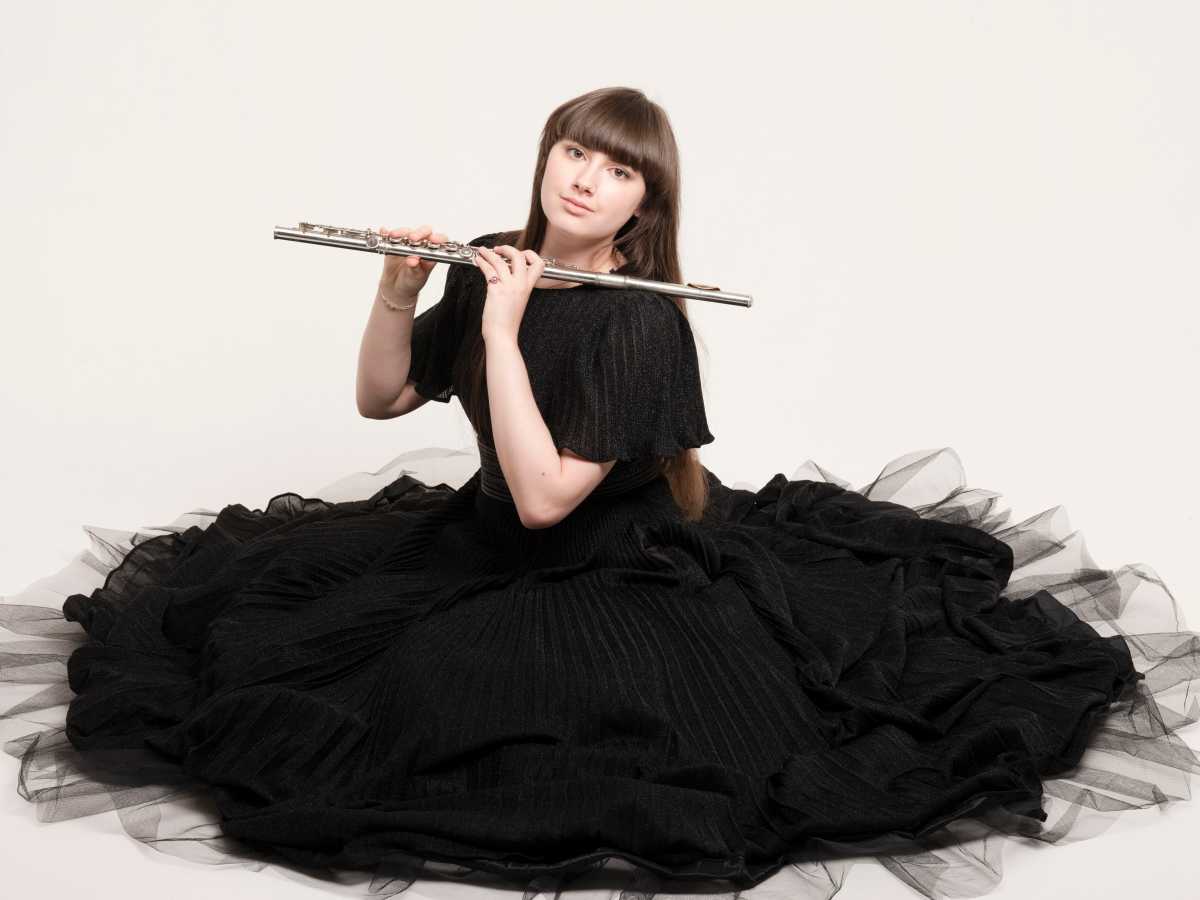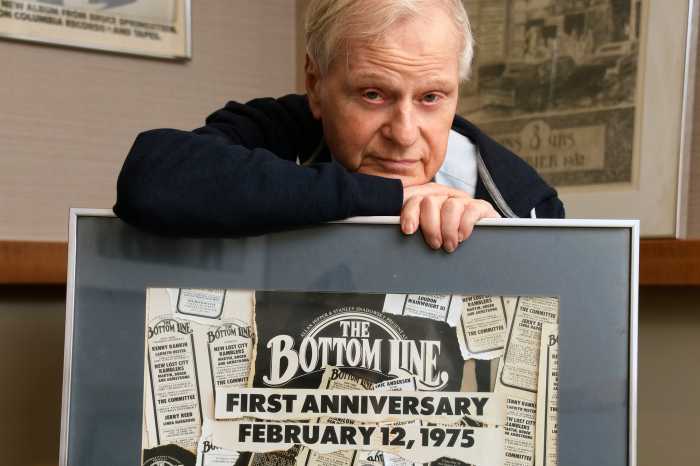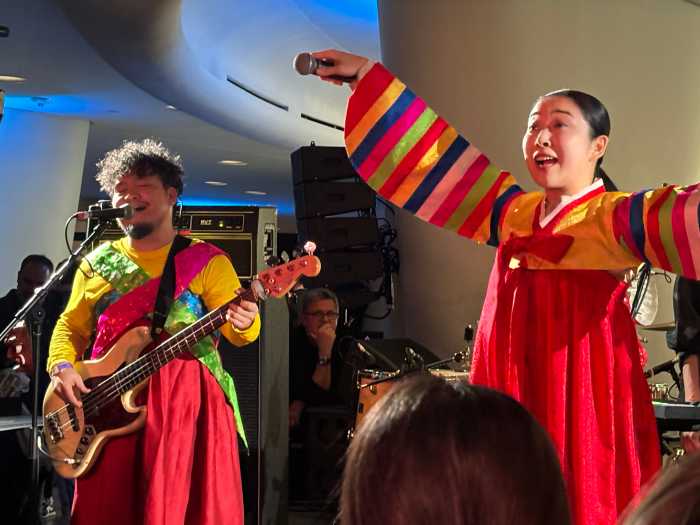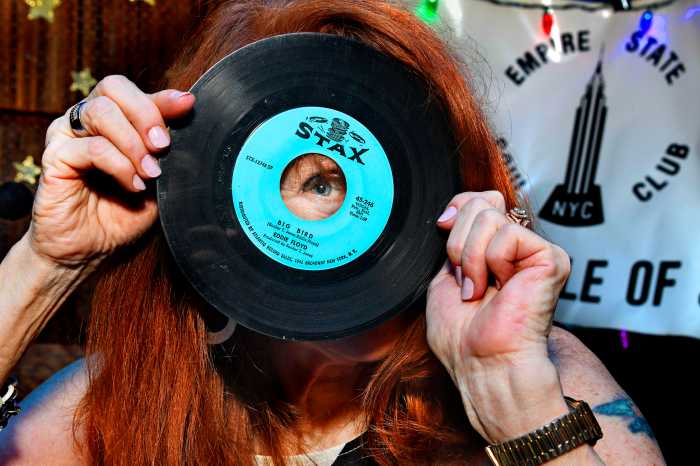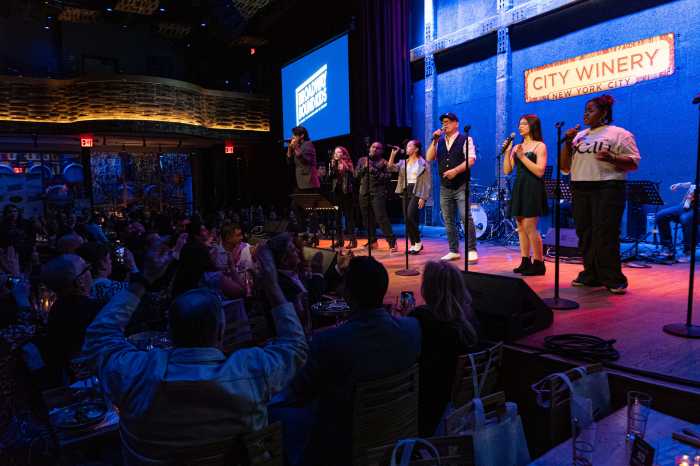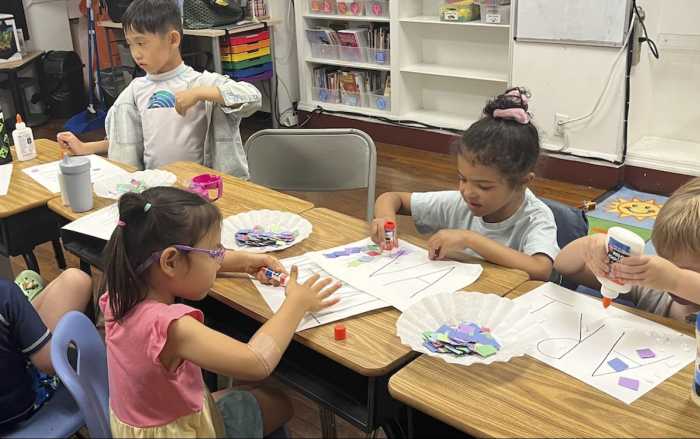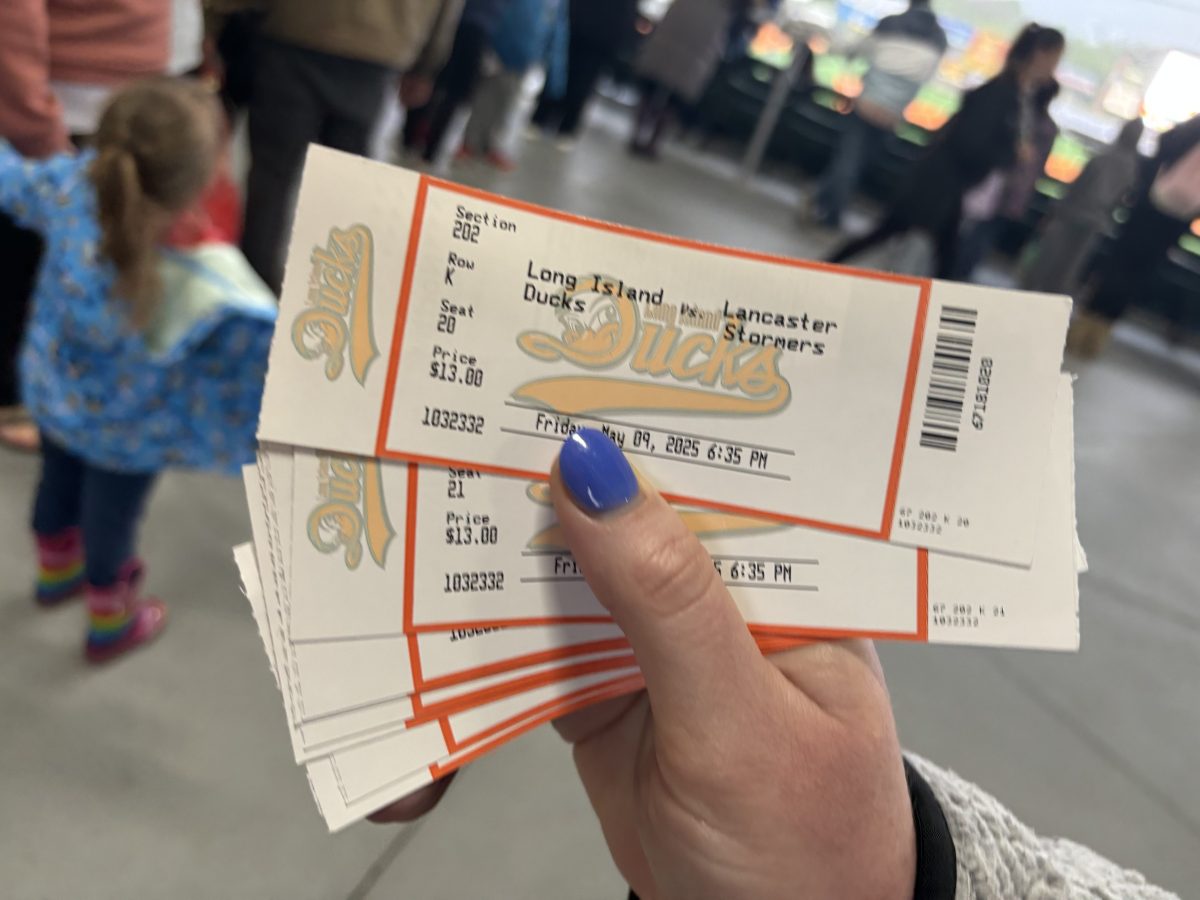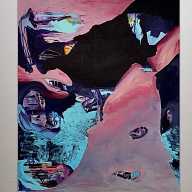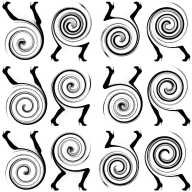The flute is an enigmatic, beautiful instrument able to produce sounds at once sweet and sorrowful seeming pulled literally out of thin air. “The Magic Flute” (or “Die Zauberflöte”) is the title of a beautiful Mozart opera, but played by a talented musician, the flute itself can make its own magic. In the hands of a gifted musician, there are few, if any, things as beautiful as the mesmerizing sound of this instrument.
Nikka Gershman is one such gifted musician, who will perform “Flute Through the Ages, from Vivaldi to Liszt,” chronicling the history of the flute in classical music, on Tuesday, October 28, at 7 p.m. at Columbia University’s iconic St. Paul’s Chapel, 1160 Amsterdam Ave.
Tickets are free, but reservations are required at nikkaflute.com/events for the concert, where she will perform with a piano accompanist, Matteo Generani, following a 6:15 p.m. pre-concert talk by Kieran Foss.
“This program is a portrait of the history of the flute,” Gershman said in the Upper West Side apartment where she lives surrounded by posters of Jean Sibelius, Glenn Gould, Marcel Moyse, Leonid Kogan, the film Amadeus with F. Murray Abraham, and La Scala. “The concert begins in the 1700s and takes the listener on a journey to the present.”
Gershman is a flutist by talent and temperament, who started as a musical prodigy with perfect pitch, often playing music the first time she hears it. “I don’t ever make a conscious effort to memorize music. It feels like it’s always inside me,” she said.
Now, she is a seasoned performer who treats the flute like an extension of her soul. Gershman already has performed at many of the world’s most storied concert halls, with appearances in New York City at Alice Tully Hall, Merkin Hall, and Carnegie Hall.
Among her numerous first-prize awards, she won a Career Grant from the Salon de Virtuosi, one of the most prestigious associations for classical musicians in New York, along with a highly competitive audition to become an iPalpiti Artist, an organization founded by Lord Yehudi Menuhin and Eduard and Laura Schmieder.
With a resume that belies her age, she is all of 17 and someone who through passion, natural ability, and practice has matured into a musician able to capture the nuances that differentiate good from great performance.
Born in Los Angeles, Gershman has already accomplished many firsts. She became the youngest person to have her composition and arrangement published by Theodore Presser, the nation’s oldest continuous music publisher.
She was also the youngest ever student accepted to the world-renowned Juilliard School on a Kovner Fellowship, a full scholarship, at age 15, pursuing her Bachelor of Music degree (Val Kilmer was admitted to the Drama Division at 17).
Gershman skipped three years of high school and is on track to be the youngest to graduate from Juilliard’s storied music education history. “When I was 10, I created a future autobiography. In it, I wrote that I would graduate from Juilliard by the time I’m 19. I can’t believe that my childhood dream is becoming reality,” she said.
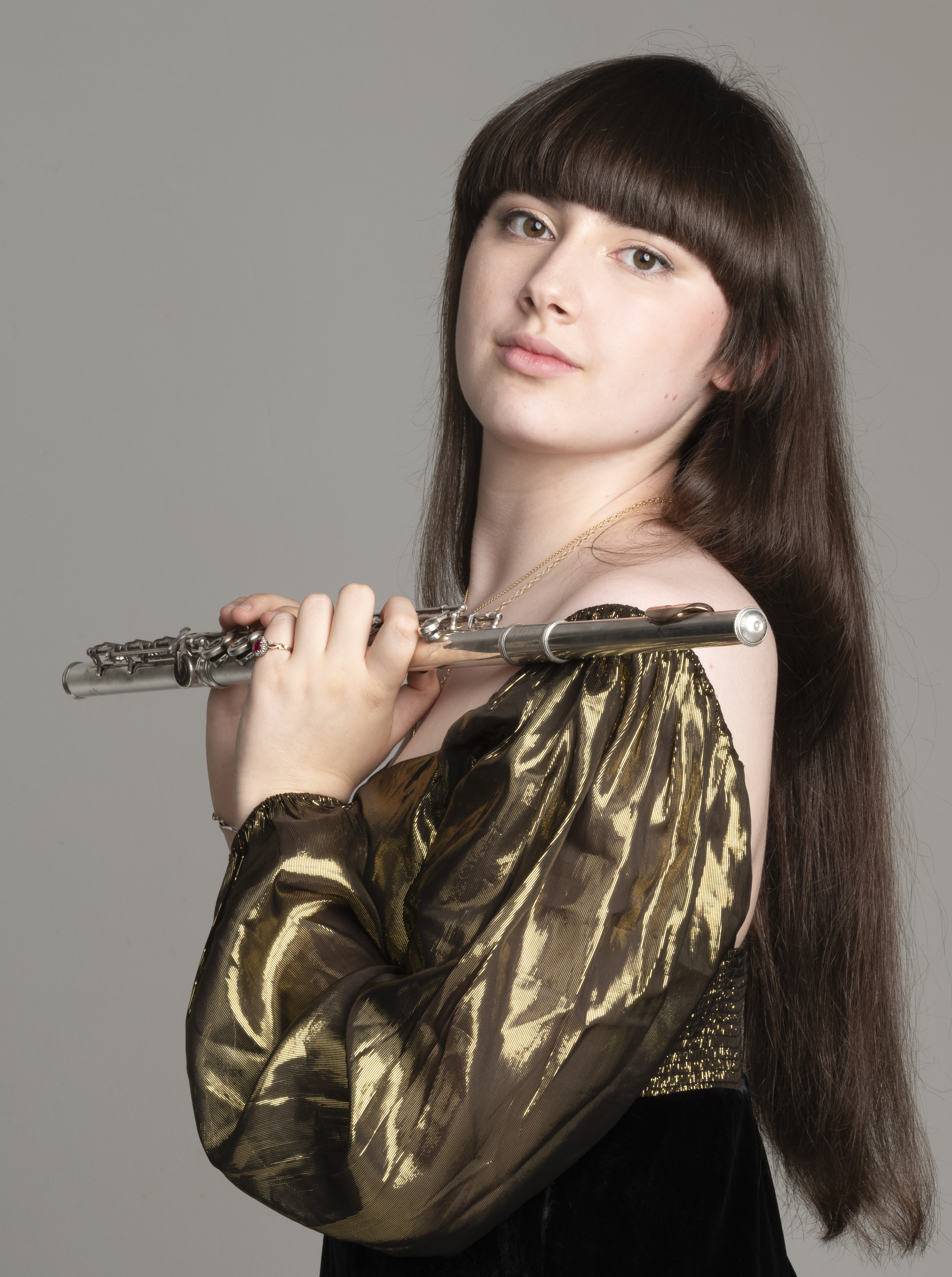
Gershman sees music as a mix of technical and emotional elements. “Of course, there’s playing the right notes, but music goes far beyond executing the correct pitches at the right time with the right volume,” she said. “As Beethoven himself noted, ‘To play a wrong note is insignificant; to play without passion is inexcusable.’”
Her musical journey began when her grandparents, Dr. George and Irina Gershman, unexpectedly gifted her a piano at the tender age of three. Shortly after, her father, Evan Pepper, discovered that Gershman had perfect pitch when she could identify the notes of wind chimes. And then…
“The flute mysteriously appeared in a dream when I was 6. I can’t explain it. One morning, I knew that I had to learn the flute,” she said. “My grandma Roz Pepper bought me my first flute, and from the very first sound, it felt like a perfect extension of my body.”
A year later, she gave her first concert in Schoenberg Hall at UCLA, performing in an honors orchestra after getting a special dispensation that allowed her to do so at such a young age.
“I was the youngest student in the orchestra,” she said. “Most teachers don’t accept flute students until they’re at least 10. Their lung capacity and fingers are just too small.”
Standing five foot eight (five ten in heels) now, Gershman’s height disguised her age early, so audiences simply assumed she was older. They reacted to her music, not to her youth.
“I think of myself as a mature artist. Prodigies might have incredible abilities. A lot of times, unfortunately, it comes from someone forcing them into it,” she said. “I came to music completely myself. My family would have preferred if I was something else. However, when I decided to be a musician, it was always love and support, never any pressure. My mother, Zhenya Gershman, a painter, even moved with me to New York because I was too young to live in the dorms.”
When Gershman arrived at Juilliard, she soon found out that ability has no age. “On one of my first days, I was feeling intimidated, because I was 15 and everybody else was at least 18 and we had students up to age 30 in the doctoral program,” she said. “A new friend came up to me and said, ‘We really don’t care about your age. We only care about your talent.’ From that point on, I felt like I belonged.”
At Juilliard, she is surrounded by artists at the highest level. “I’m always grateful to my mentors from my earliest childhood to now, such as Mandy Fey, Diana Morgan, Julia Bogorad-Kogan, Jim Walker, Raffaele Trevisani, Henning Rübsam, and my current teacher, Carol Wincenc,” she said. “Ms. Wincenc is such an inspiration. Recently, she invited our flute studio to perform a volunteer concert, ‘If Music Be The Food’, which benefits the most underprivileged New Yorkers. As a composer, I believe some of my greatest teachers are the artists of the past. My most recent teachers are Beethoven and Shostakovich!”
Music is more than something she simply studies, practices, and performs. It’s a key part of her identity as a composer. “Sometimes I wake up in the middle of the night, dictating melodies into the voice recorder on my phone. In the morning, I transform them into full compositions,” she said. “Music is always present in my consciousness, regardless of the hour.”
While some talk about stage fright, she only looks forward to her next concert. “The program feels like it finishes too quickly,” she said. “The stage is my home.”
Gershman’s favorite pieces include the Sibelius Violin Concerto, which she performed with the Vienna Opera Ball Orchestra at the Wiener Konzerthaus, conducted by Laszlo Gyüker.
“A unique feature of this piece is adding an extension to my flute,” she said, noting she is a Young Artist of the William S. Haynes Flute Company, the oldest flute manufacturer in America. “Normally, the lowest note on the flute is a B. Since I have a passion for violin repertoire, Haynes created a prototype extension for my instrument, allowing the lowest note to be a B-flat.”
Sir James Galway, the world’s most famous flutist and among her mentors, told her the difference between a good soloist and a great soloist is the ability to project. There are no microphones in classical music. Galway taught Gershman that “a person paying ten-dollar student tickets at the back of the hall should have the same experience as a patron in the front row.”
Someone whose performances attract audiences due to unique abilities, Gershman is particularly looking forward to her upcoming concert at Columbia, concluding with the premiere of her transcription of Franz Liszt’s Mephisto Waltz for flute and piano. In her arrangement, there are countless technical fireworks that are almost impossible to play, requiring extreme acrobatics from the tongue and fingers.
Another memorable piece featured on the program is the La Notte Concerto by Antonio Vivaldi, one of the first examples of programmatic music that portrays the Venetian night. “Vivaldi died in poverty, yet his music is some of the most popular in the entire world today. Perhaps, this is one reason it speaks to so many listeners on a deep level,” Gershman said. “You can hear his longing through his music, but he proves that art is lasting and triumphant.”



